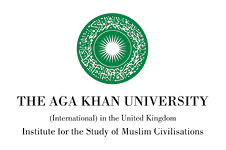Heritage

What we call Indian Ocean Heritage is based on the Unesco definition of tangible and intangible heritage. Tangible heritage concerns all the material culture: sites, monuments, arts, crafts, and objects. Intangible heritage is about immaterial culture such as oral and folk traditions, dance, music…
The Indian Ocean programme focuses on Heritage, especially on the Maritime Silk Roads between China, India and Africa. We work on the cultural links between the Western and eastern shores of the Indian Ocean, but also the zones of circulation of trade and people such as the Gulf, the Red Sea and the strait of Malacca. Despite our fcus on Muslim cultures, we are very concerned by pre-Islamic traditions and non-Muslim communities in Muslim context: Hindu, Christian, Jew, Buddhist…
Our Journal of Material Cultures in the Muslim World (MCMW) published by Brill in collaboration with the Aga Khan Museum in Toronto, aims to be a new reference for field archaeologists, art historians, anthropologists, curators, and scholars and students of the (art) history, archaeology, architecture, anthropology & ethnography of the Muslim world. This readership represents a new broader definition of material culture that includes not only artefacts, architectural structures and monuments, but also crafts. The journal also aims to inform (other) disciplines and historiographies, by including (unreviewed) archaeological field surveys for example.
With global warming and rising sea levels, maritime heritage is at risk. Our faculties are working with Google Arts, Heritage on the Edge, to highlight these dangers, and with the World Monument Fund and the Aga Khan Trust for Culture to save these monuments.
We organised two exhibitions, one on the Indian Ocean architecture in 2018, and one in partnership with Cape town university (Zamani project) on Black Monuments Matter in 2020.
Archaeology, architecture and conservation are opportunities for the AKU to develop field school to train local researchers and to participate to sustainable development through education. Rescue and salvage archaeology is the key component of our programme to protect Muslim material culture. Our experts work with conservation architects to excavate and restore ancient sites and monuments. Sustainable development and capacity training are at the heart of our programme to raise awareness about historical sites, and to train local populations to maintain these sites and to benefit from them through an eco-responsible tourism. Our results are already visible and impressive: with UNESCO we managed to save and keep on the World Heritage List some sites in danger such as the ones in Kilwa, Tanzania; we are working on adding other sites to the List such as Kua in Tanzania, and the Coral Mosques of the Maldives.


